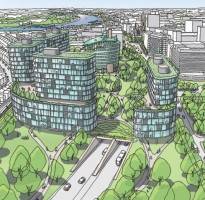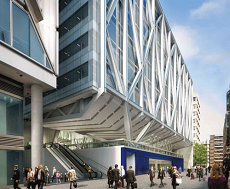March 19, 2015
Six key workplace and property announcements from this week’s budget
 In yesterday’s budget announcement, the Chancellor maintained the Government’s focus on regional devolution and investment in both physical and digital infrastructure. In truth, there was little surprising in the announcements, many of which had been signalled in advance and were rooted in existing policies. Some of them arrived fully formed, such as the devolution of powers related to business rates. Others, including the much talked about and overdue investment in regional infrastructure such as the cross country fast rail link, were fleshed out. Given that this is a budget with both eyes on the forthcoming general election, it’s a shame that some announcements lacked detail. Here are six of the key announcements that will affect the workplace, technology and property sectors.
In yesterday’s budget announcement, the Chancellor maintained the Government’s focus on regional devolution and investment in both physical and digital infrastructure. In truth, there was little surprising in the announcements, many of which had been signalled in advance and were rooted in existing policies. Some of them arrived fully formed, such as the devolution of powers related to business rates. Others, including the much talked about and overdue investment in regional infrastructure such as the cross country fast rail link, were fleshed out. Given that this is a budget with both eyes on the forthcoming general election, it’s a shame that some announcements lacked detail. Here are six of the key announcements that will affect the workplace, technology and property sectors.





















March 18, 2015
What the colonisation of new domains tells us about how we work
by Charles Marks • Architecture, Cities, Comment, Flexible working
(more…)